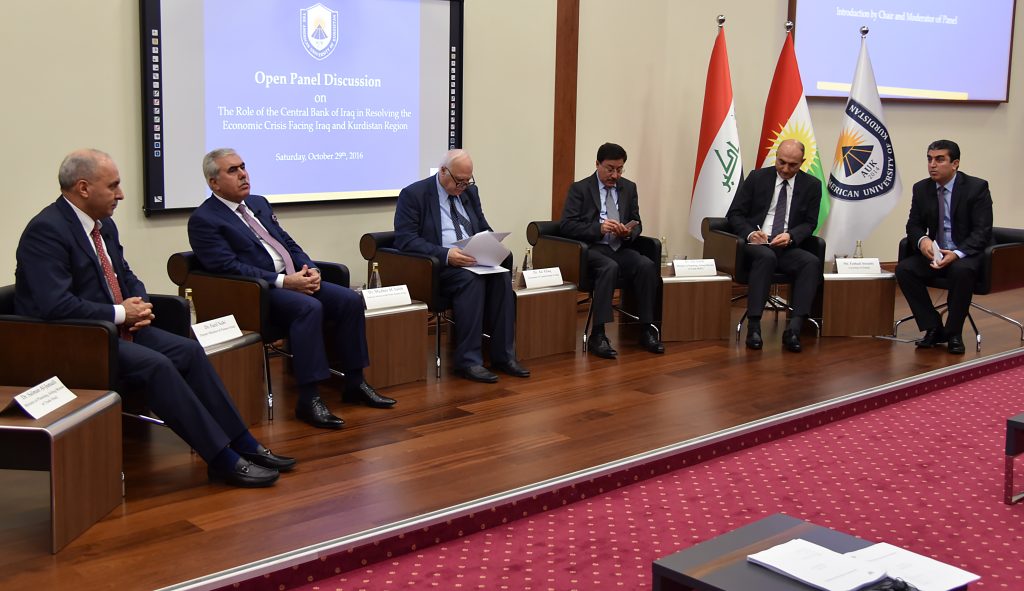Leaders and Experts Gather at AUK to Discuss Iraqi Central Bank’s Role in Kurdish and Iraqi Economic Crisis
Duhok, Iraqi Kurdistan – October 29, 2016 – Political leaders, government officials, and legislators met on Saturday, October 29th to discuss the role the Central Bank of Iraq should play in alleviating Kurdistan’s and Iraq’s economic woes. Among the speakers were several Iraqi and KRG cabinet members and economic experts.
Member of Parliament (Iraq) Najiba Najib stressed the importance of establishing a dialogue among Kurdish and Iraqi policymakers and economic advisors. Dr. Ali Sindi, KRG Minister of Planning and Active Minister of Trade, addressed the potential use of foreign exchange reserves in funding public projects. His Iraqi counterpart, Dr. Salman Al-Jumaili, relayed actions the Iraqi Ministry of Planning is currently taking in order to pay for investment plans. Dr. Ali Al-Allaq, governor of the Central Bank of Iraq, expounded on the role of monetary policies in financing government expenditures. Financial Advisor to the Prime Minister of Iraq, Dr. Mudher Mohammed Saleh, spoke on short-term solutions for coping with the financial crisis, while Iraqi Deputy Minister of Finance, Dr. Faisal Nabi, discussed the benefits of utilizing international loans to fund government initiatives.
Sindi estimated that 3600 projects have been halted as a result of the economic crisis. Al-Allaq asserted that the “KRG government is suffering now because they don’t have strong ties with the Central Bank of Iraq.” Along similar lines, Dr. Ayad H. Abdulhalim, Duhok Chair of Commerce, proposed “a linked committee between the KRG and the central government.” While others emphasized the need to improve relations with Baghdad, Dr. Honar Issa, provost of the American University of Kurdistan, hailed education as the only long-term solution to economic vulnerability. According to Issa, “If volatility in energy prices have had such devastating effects on our economy, we must diversify. We must equip a workforce with all the skills it needs for a sustainable, dynamic economy we must invest in education.”
The KRG has been experiencing serious financial difficulties since 2015 as a result of low oil prices and a costly war with the Islamic State. Disagreements with Baghdad over its budgetary obligations have cooled relations between the KRG and the Iraqi central government.


